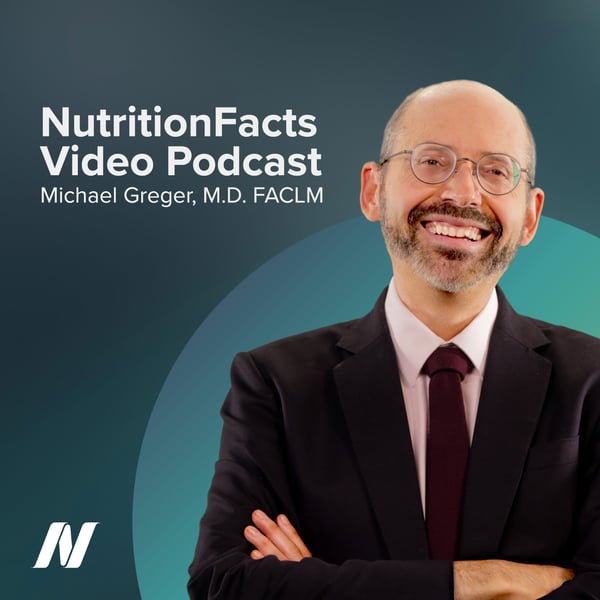How Generosity May Help You Be Happier and Live Longer
NutritionFacts.org Video Podcast
[email protected]
4.8 • 877 Ratings
🗓️ 3 December 2024
⏱️ 6 minutes
🧾️ Download transcript
Summary
Transcript
Click on a timestamp to play from that location
| 0:00.0 | Many things make people happy from eating foods to cashing checks. |
| 0:12.0 | But alas, the more we experience some dose of pleasure, the less pleasurable the dose. |
| 0:16.6 | This is what's called hedonic adaptation, how the first bite of chocolate always tastes better |
| 0:22.3 | than the last. |
| 0:24.0 | How can we sustainably increase the well-being of the general population? |
| 0:29.7 | What about being good by doing good? |
| 0:34.4 | Beginning of the late 1980s, reports began surfacing of the Helpers High, feelings of |
| 0:41.6 | elation, exhilaration, and increased energy following selfless service to others and then a period |
| 0:47.4 | of calm and serenity. The High was thought to be like a post-intense workout rush. Some are cynical about the helpers high, arguing that helpers engage in faux generosity |
| 0:59.6 | because of a selfish desire to feel good about themselves, as this author put it. |
| 1:05.2 | Perhaps it's no accident. |
| 1:06.5 | These naysayers often seem selfish, grouchy, grumpy, test irritable. |
| 1:12.0 | They deny themselves the positive emotional benefits that flow from helping others |
| 1:16.8 | and therefore miss out on the happiness and exhilaration that are part of the helpers' |
| 1:21.9 | high. |
| 1:23.7 | Pro-social behavior engaging in actions that benefit others is considered a bedrock of society. |
| 1:29.3 | Whether communities thrive hinges on the willingness of their members to cooperate with one another and help those in need. |
| 1:36.3 | The central role of pro-social behavior is supported by research showing that infants as young as three months of age |
| 1:43.3 | pay attention to the pro-social |
| 1:45.5 | and antisocial actions of others and strongly prefer pro-social people. |
| 1:50.7 | There's also evidence that giving leads to happiness in young children. |
| 1:53.8 | By age two, toddlers are happier giving away treats to others than receiving treats themselves. And if it's their own treat they're giving away treats to others than receiving treats themselves. |
... |
Please login to see the full transcript.
Disclaimer: The podcast and artwork embedded on this page are from [email protected], and are the property of its owner and not affiliated with or endorsed by Tapesearch.
Generated transcripts are the property of [email protected] and are distributed freely under the Fair Use doctrine. Transcripts generated by Tapesearch are not guaranteed to be accurate.
Copyright © Tapesearch 2025.

